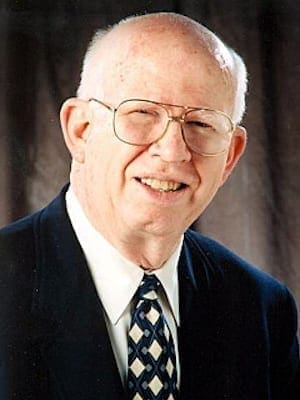An article I read recently extoling the virtues of complementarianism nagged at me. It would not let me rest.
Complementarianism is a religious construct that deals with the roles of gender. The message is evil at its center.
“The SBC has affirmed complementarianism – the belief that the Bible reveals that men and women are equally made in God’s image, but that men and women were also created to be complements to each other, men and women bearing distinct and different roles,” Al Mohler, president of Southern Baptist Theological Seminary, stated in a recent column. “This means obeying the Bible’s very clear teachings on male leadership in the home and in the church.”
To me, it is nothing more than the old argument of “separate but equal” applied to gender roles and dressed in a type of theological clothing. This is the same argument earlier generations used to justify segregation of the races.
The whole idea is to downgrade the role of women and to promote the superiority of men. Proponents dress it up and clothe it in statements of love. In most cases, this is window dressing.
For many, it is the excuse they need to keep women in their place.
We have been through this before: “Blacks are fine as long as they stay in their place.” It stank then and it stinks now. Separate but equal was never equal, and no one pretended that it was.
The black schools in the town of my youth got hand-me-down textbooks, hand-me-down desks and chairs and rundown buildings.
We took our money to church for missionaries to win the lost in Africa, but the black children two blocks away could not come to church with us.
Under complementarianism, in many churches women can’t teach men because that is not their God-prescribed role.
The inconsistency of the position is seen in the fact that female teachers teach male students in public and private schools, including religious ones, every day.
The goal is to keep women in lower paying jobs and deny them authority. The males who promote this travesty are in control and have no intention of relinquishing any of their control.
“The same Bible that reveals the complementarian pattern of male leadership in the home and the church also reveals God’s steadfast and unyielding concern for the abused, the threatened, the suffering and the fearful,” Mohler stated. “There is no excuse whatsoever for abuse of any form, verbal, emotional, physical, spiritual or sexual.”
And yet, the nation is finally seeing some of the harmful results of this philosophy, which plays into the hands of those who abuse women around the world: “The church says that you are to obey me.”
Jesus set the example for another and better way. He made it very clear that there is no artificial ranking of male and female roles in his kingdom. “Mary, go and tell my disciples.”
Paul emphasized this in Galatians 3:28. “There is neither Jew nor Gentile, neither slave nor free, nor is there male and female, for you are all one in Christ Jesus.”
Growing up Southern Baptist, my experience with women pastors is limited, but I have been blessed by hearing some of the best: Linda McKinnish Bridges, Amy Butler, Molly Marshall, Joan Brown Campbell, Cynthia Campbell, Julie Pennington-Russell, Susan Sparks and Martha Brown Taylor, to name only a few.
Not only have I been blessed by hearing these women, I have gained so much insight from them.
I regularly listen to and read Sparks, pastor of Madison Avenue Baptist Church in New York City.
She places God in the center of our every action and has a sense of humor and such an awareness of God’s presence in the ordinary that you are compelled to listen and take notice.
McKinnish Bridges, president of Baptist Theological Seminary at Richmond, Virginia, preached her sermon, “Grace upon Grace,” 27 years ago. Yet it is as fresh today as it was the first day I heard it because it expresses God’s work in my life.
Marshall, president of Central Baptist Theological Seminary in Kansas, awakened my interest in the influence of the Holy Spirit in our daily lives.
Cynthia Campbell, president emerita of McCormick Theological Seminary in Chicago, preached the most inspirational sermon on the resurrection I have ever heard.
God’s love for all of humanity oozes from every word from the sermons of Joan Brown Campbell, an ordained Disciples of Christ and American Baptist Church minister who was the first woman to lead the National Council of Churches.
How can you say that God rejects the work of these ambassadors of hope because they dare preach to men?
I have experienced outstanding female Bible teachers in my years in the church. You want me to disregard the teachings of these gifted women because I am a male and should not have been listening to them?
Should I have not have listened to my mother when she spoke of God’s love for me? Should I have not listened to my wife when she assured me that God would watch over me and our children?
All of these women were gifted by God with talents far greater than the ones given to me. I think God brought me into contact with them because they had been given a message I was intended to hear.
I ask myself, “Where would I be in my spiritual journey if these women were not a part of my life?”
Complementarianism belongs on the ash heap of history along with separate but equal.
Mitch Carnell is a member of First Baptist Church of Charleston, South Carolina. He is the author of “Our Father: Discovering Family.” His writings can also be found at MitchCarnell.com.
A member of First Baptist Church of Charleston, South Carolina, he was the author of “Our Father: Discovering Family.” Mitch’s writings can be found at MitchCarnell.com.

